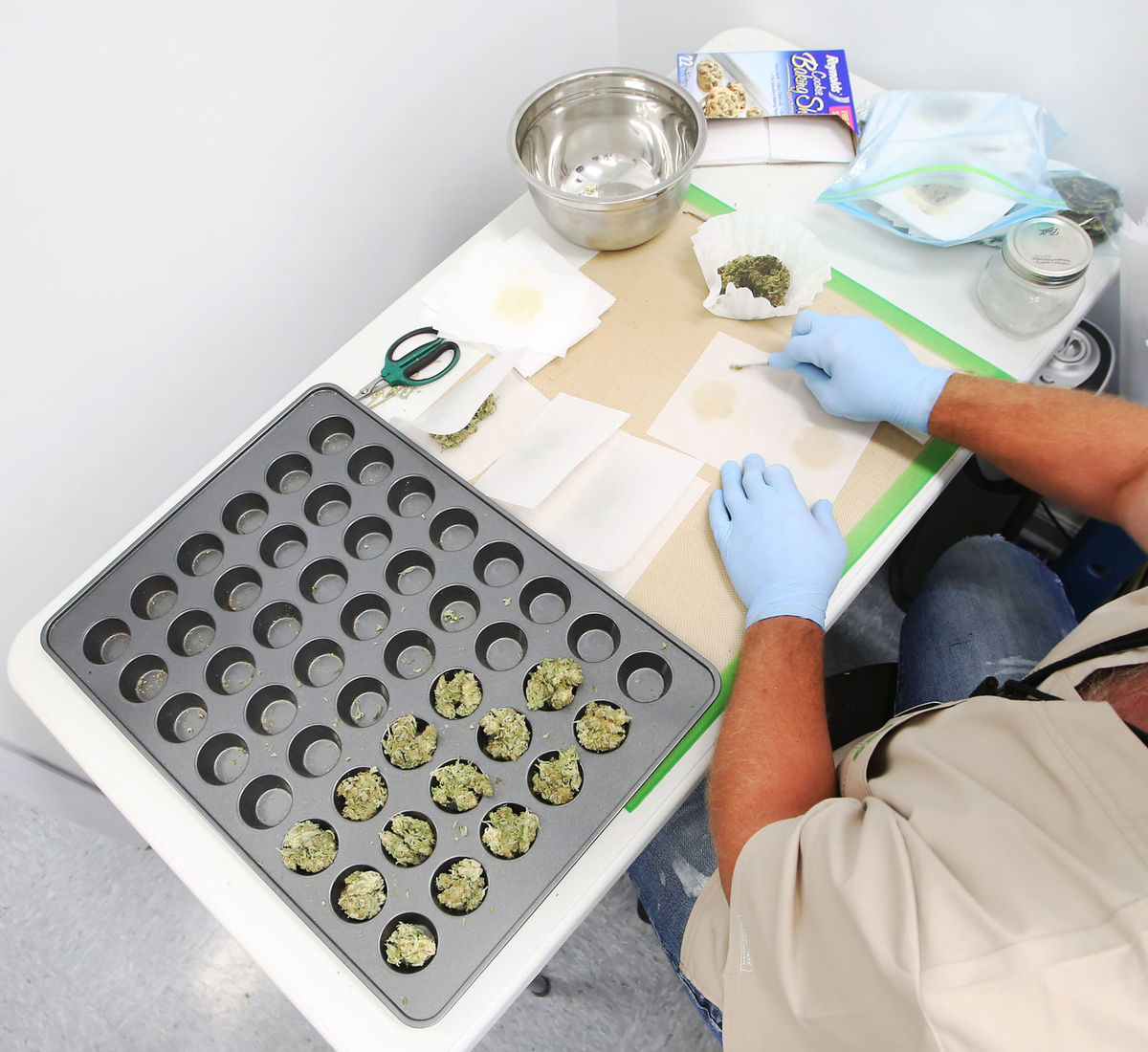There appears to be strong interest in creating a medical cannabis business under Iowa’s newly expanded law.
The number of card-carrying, would-be medical cannabis users remains minimal, however.
Dozens of individuals and businesses have inquired with the state Department of Public Health about establishing a medical cannabis business in Iowa, a key employee with the department said.
Earlier this year Iowa’s medical cannabis law was expanded to allow for the creation of no more than two businesses to grow marijuana and produce medical cannabidiol and no more than five businesses to sell the product.
Previously, Iowans could obtain medical cannabidiol to treat epileptic seizures, but the law did not allow for the production and sale of the medicine here.
With that barrier eliminated, roughly 50 individuals and businesses have reached out to the state Department of Public Health to inquire about the process for starting a medical cannabis business, said Randy Mayer, coordinator of the department’s medical cannabidiol office.
The department plans to put out a request for proposals for manufacturers this fall, likely in October, Mayer said, with the goal of having up to two producers licensed by December.
Then, the department will put out a request for proposals for dispensaries in January, with the goal of having up to five sellers licensed by April, Mayer said.
The businesses must be licensed and ready to operate by Dec. 1, 2018.
“We have had some interest,” Mayer said. “A lot of people seem fairly knowledgeable about this process.”
Process in the works
Although about 50 people have expressed interest in establishing a medical cannabis business in Iowa, the state’s nonpartisan Legislative Services Agency predicts a small number will ultimately submit applications.
The state’s application fees are $7,500 for manufacturers and $5,000 for dispensaries. The agency estimates there will be a handful of applications for the two manufacturing licenses and about 10 applications for the five dispensary licenses.
Mayer said many of the interested parties have had specific questions about establishing a medical cannabis business, but he cannot answer most until a medical cannabidiol board is established. That board will be responsible for implementation of the newly expanded program; its members are to be appointed by Gov. Kim Reynolds.
Mayer said he is hopeful the board is established in time to meet in October and discuss rules for program implementation. He said he also assumes there will be plenty of public feedback when the process is made open for public comment.
“A lot of the answers we’re expecting to come from the medical cannabidiol board,” Mayer said. “They will have to address the form (of the product) and quantity, what types of products are going to be manufactured for which conditions.”
The program expansion also freed the department to license up to two out-of-state medical cannabis sellers. But Mayer said the department is not pursuing that, for now, until it gets assurances from the state Attorney General’s Office.
The department’s concern is that federal law prohibits the transport of medical cannabis across state lines.
“We have requested some guidance from the Attorney General’s Office about that, which we have not received yet,” Mayer said. “At this point, we’re going with the two manufacturers and five dispensaries until we receive guidance that we should or should not pursue that avenue (of licensing out-of-state dispensaries).”
Few cards issued
The early interest in creating a medical cannabis business in Iowa appears strong despite the fact program participation remains minimal.
As of Tuesday, there were just 114 active registration cards in the program, according to the state Department of Transportation, which issues the cards.
In an effort to boost the number of ailing Iowans who could be helped by the medical cannabis program, the state also expanded the law to include the coverage of more ailments, including cancer, multiple sclerosis, Crohn’s disease, Parkinson’s disease and any terminal illness.
But since the program was expanded in mid-May, only 48 new cards have been issued, according to state figures. And that number does not necessarily represent only individuals who are new to the program; it could include some who were in the previous, more limited program as well, state officials said.
State Sen. Joe Bolkcom, D-Iowa City, who has been an outspoken proponent of establishing and expanding a state medical cannabis program, said he is concerned that even with the recent expansion, there will not be enough patients to make any new manufacturers or dispensaries profitable.
Bolkcom said he is dismayed the state did not increase the legal potency of the cannabidiol — it remained at 3 percent — which limits the medicinal impact the product may have on some of the covered ailments.
“I remain pessimistic about what we passed,” Bolkcom said about the expansion that was approved under all-Republican control of the Iowa Legislature and governor’s office. “I think we’re setting this thing up for failure.”
Bolkcom said he hopes state lawmakers will expand the program again during the 2018 legislative session to allow for the production and sale of a more potent product that could help more patients, thus creating more buyers for medical cannabis businesses.
“I’ve run into a lot of Iowa businesses and entrepreneurs who would like to have a shot at creating jobs and economic development around medical cannabis. The competition for these licenses, I think, is going to be fierce, going to be intense,” Bolkcom said. “Without (changes to expand the program further), the multi-million-dollar investment these folks are going to make, they’re never going to get their money back.”
Link – QC Times







